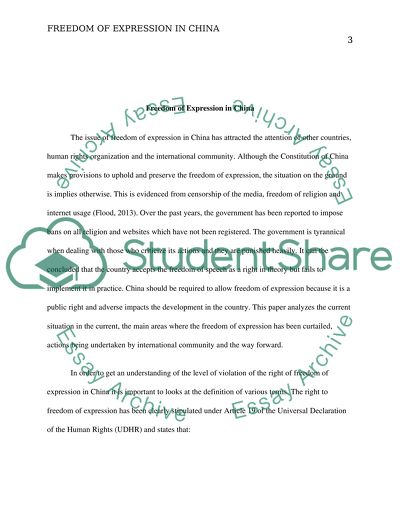Cite this document
(“Freedom of Expression in China Research Paper Example | Topics and Well Written Essays - 2500 words”, n.d.)
Retrieved from https://studentshare.org/sociology/1480546-freedom-of-expression-in-china
Retrieved from https://studentshare.org/sociology/1480546-freedom-of-expression-in-china
(Freedom of Expression in China Research Paper Example | Topics and Well Written Essays - 2500 Words)
https://studentshare.org/sociology/1480546-freedom-of-expression-in-china.
https://studentshare.org/sociology/1480546-freedom-of-expression-in-china.
“Freedom of Expression in China Research Paper Example | Topics and Well Written Essays - 2500 Words”, n.d. https://studentshare.org/sociology/1480546-freedom-of-expression-in-china.


